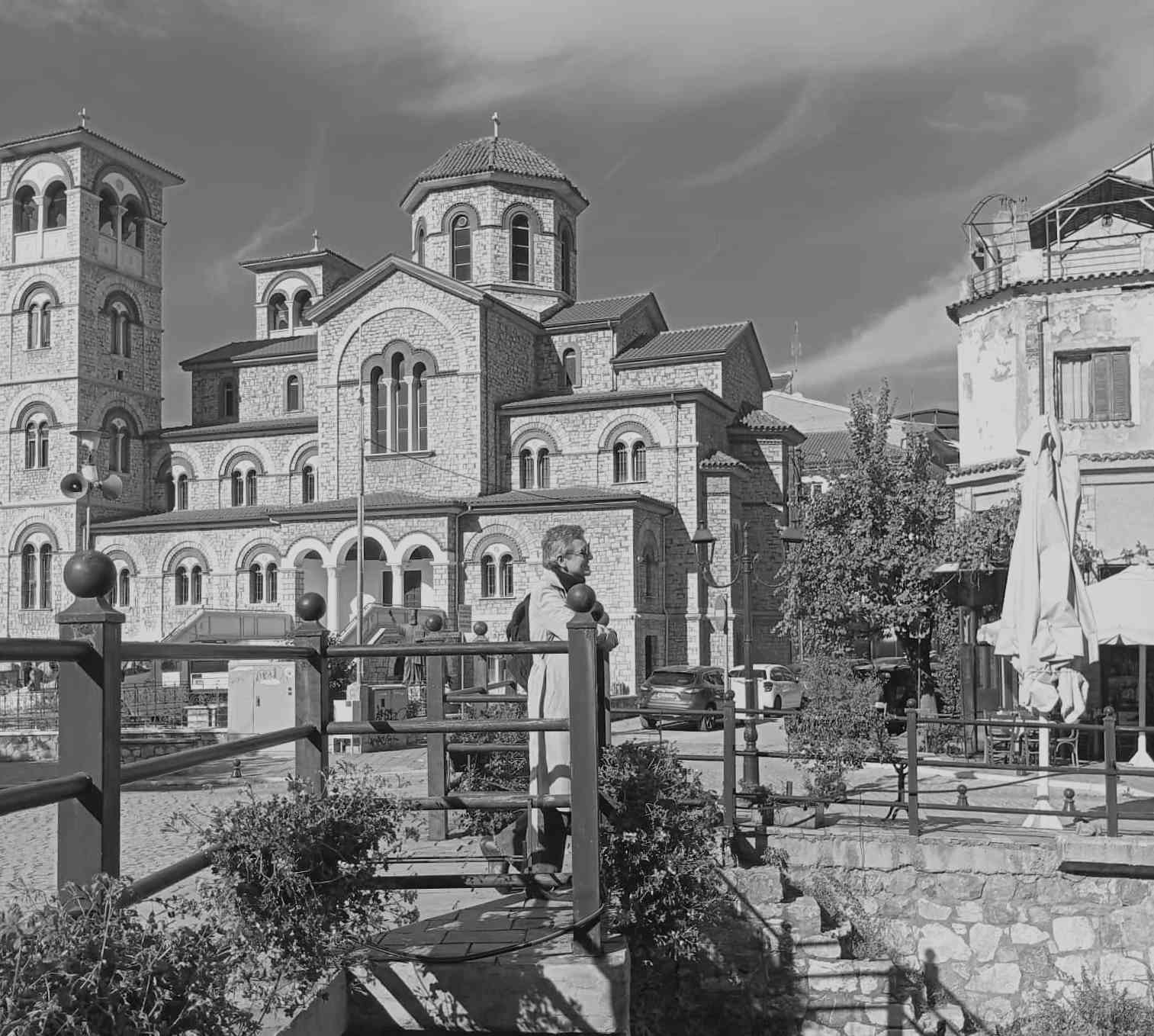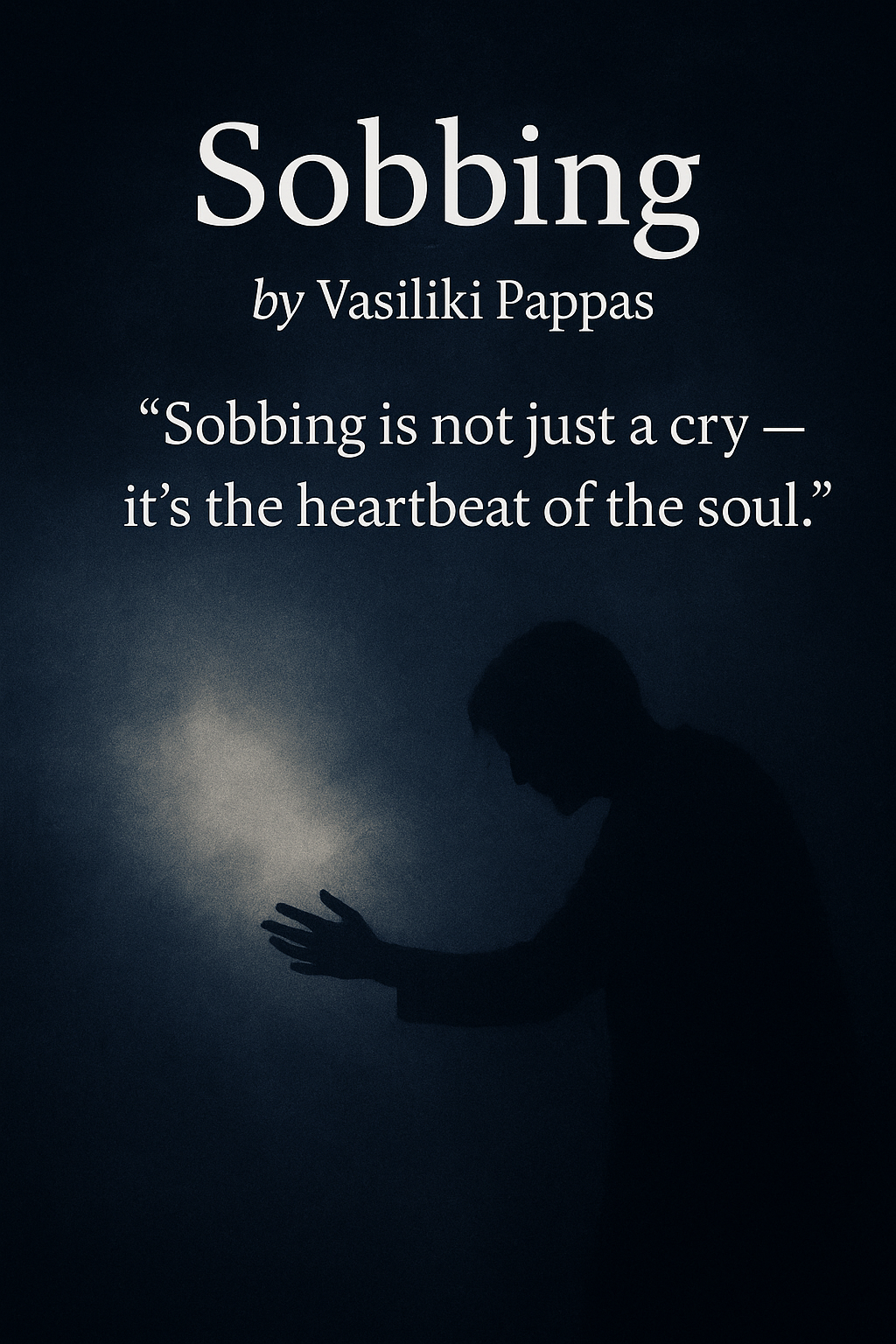Between Memory and Myth: The Timeless Flight of Dragons in Vasiliki Pappas’ Work

Time stands still as memory gazes back — a dialogue between the living and the past.
In her evocative poem "Do the Fairy Tales' Dragons Fly, Grandpa?", Greek poetess Vasiliki Pappas weaves memory, imagination, and philosophical reflection into a timeless meditation on childhood, storytelling, and the human experience. Through the recurring motif of dragons and the vivid imagery of lost paradises, Vasiliki Pappas explores the fragile yet enduring connection between past and present, reality and myth. Translated into English by Aliki Naka and featured in the anthology On the Princess' Shores, the poem invites readers to reflect on the persistence of memory, the flight of imagination, and the enduring power of stories across generations.
Do the Fairy Tales' Dragons Fly, Grandpa? By Vasiliki Pappas
(From the anthology "On the Princess' Shores" – Collaboration with Tasos Vyzantios, Translation by Aliki Naka)
Do the fairy tales' dragon fly, grandpa?
Time to keep accounts… time of memory.
Grandpa's fairy tales, come and come again
faded… but very often.
Stories of a lost Paradise
And of a lost Paradise
and of a real life
that has irrevocably gone…
Where has this life gone? I wonder.
Has it stayed back there in the past or
Has it been transferred to the future?
In the summer memories come and come again
Stories in blue, mauve and orange colors.
A vicious circle…
Classic and timeless stories.
Nobody understood them, as much as we did…
"Do the fairy tales' dragons fly, grandpa? Do they?"
"They do fly in the mind's dusty roads,
They wander and they fly…"
I look around, a chilly air enters
through the mind's window…
Time has passed – stop…
Grandpa do you hear me?
The era that you were keep on promising, has gone…
now they sell us plastic dreams
dreams away from knowledge
Consuming our time for survival…
They have reduced us to utter poverty, grandpa,
do you hear me?
Everything reminds me of you… and we are spectators
Of an era that has irrevocably gone
but of a truth that remains
a coherent link
that accredits us to the future…
the future is still here…
Even if I wanted you to be here
the return to the past terrifies me…
Long the journey is to the night tonight…
Souls, finally, don't die…
Death is not the end…
It is not black darkness…
memories carry on
beyond death.
Kalamaria, 18–19/07/2017
Critical Review
The poem "Do the Fairy Tales' Dragons Fly, Grandpa?" by Vasiliki Pappas, featured in the anthology On the Princess' Shores in collaboration with Tasos Vyzantios and translated into English by Aliki Naka, is a poignant and multi-layered example of contemporary Greek poetry. It weaves together memory, imagination, and philosophical reflection, offering a meditation on childhood, storytelling, and the enduring resonance of human experience across time.
From the outset, the poem establishes a deeply nostalgic tone, as the speaker revisits childhood memories and the narrative treasures passed down by her grandfather. The recurring question, "Do the fairy tales' dragons fly, grandpa? Do they?" serves as a central motif. It is not merely a reference to folklore but also a metaphor for the human need to preserve imagination despite the hardships of life. The repetition of this question evokes a sense of ongoing search and internal dialogue, while enhancing the poem's musicality and contemplative rhythm.
The poem's thematic scope extends beyond nostalgia. Time and memory emerge as central axes: "Time to keep accounts… time of memory." Pappas's poetry does not merely reminisce; it interrogates the nature of time itself, its endless cycles, and the inevitable sense of loss that accompanies human existence. Through phrases such as "Stories of a lost Paradise" and "the era that you were keep on promising, has gone," the poet illustrates that the past is both treasured and unattainable, accessible only through memory and imagination. This tension between recollection and longing situates the poem within a broader discourse on the interplay between personal and collective memory.
The language of the poem is fluid, often fleeting and dreamlike, making Aliki Naka's English translation both challenging and remarkably effective. Naka manages to preserve the poem's simplicity, melancholic tone, and poetic resonance, ensuring that the imagery retains its depth and intensity. The references to color—"Stories in blue, mauve and orange colors"—enrich the sensory dimension, connecting imagination with perception. These visual motifs allow the poem to function simultaneously on emotional, visual, and symbolic levels, enhancing its immersive quality.
A particularly compelling aspect of the poem is its reflection on reality and contemporary society. The poet observes that "plastic dreams" and the routines of consumerist life have replaced the richness of imagination and lived experience, offering a subtle critique of modern cultural and social alienation. The contrast between the vibrant, multicolored memories of childhood and the "poverty" of adult life amplifies the nostalgic effect, while also highlighting Pappas's incisive social commentary.
The poem also engages profoundly with mortality and existential reflection. In its conclusion, the speaker affirms that souls do not perish and that memories persist beyond death: "Souls, finally, don't die… Death is not the end… memories carry on beyond death." This thematic turn reconnects to the poem's central question about dragons and imagination, suggesting that creativity and storytelling possess a lasting, transcendental quality. The eternal nature of memory reinforces the universality of the poem, linking the fantastical imagery of childhood with enduring philosophical and spiritual inquiries.
Formally, the poem employs free verse, minimal punctuation, and carefully placed line breaks, mirroring the fluidity of memory and the fleeting nature of thought. Readers experience the text as an internal monologue or stream of consciousness, where images and reflections shift organically. This openness in structure allows the poem to breathe, creating an intimate dialogue with the audience that invites both emotional and intellectual engagement.
The collaboration with Tasos Vyzantios in the anthology and Aliki Naka's translation into English enhance the poem's accessibility and global resonance. While deeply rooted in Greek cultural memory and literary tradition, the poem's themes—childhood imagination, nostalgia, loss, and the search for meaning—speak to universal human experiences. The dragons, as symbols of imagination and boundless creativity, become archetypes that traverse cultural and linguistic boundaries, reminding readers that stories and memories sustain us beyond the confines of time.
In conclusion, "Do the Fairy Tales' Dragons Fly, Grandpa?" transcends personal experience to highlight the poetic power of memory, imagination, and the continuum between past, present, and future. Vasiliki Pappas achieves a remarkable synthesis of nostalgia and philosophical inquiry, creating a world in which dragons continue to fly. These dragons, emblematic of the creative spirit, inhabit not only childhood tales but the enduring landscape of memory and thought, offering a glimpse into the immortality of the soul and the enduring impact of poetry.
Critical Review by the Culture Magazine Literary
Editorial Team
From the anthology "On the Princess' Shores" by Vasiliki Pappas, in
collaboration with Tasos Vyzantios. Translated by Aliki Naka.


